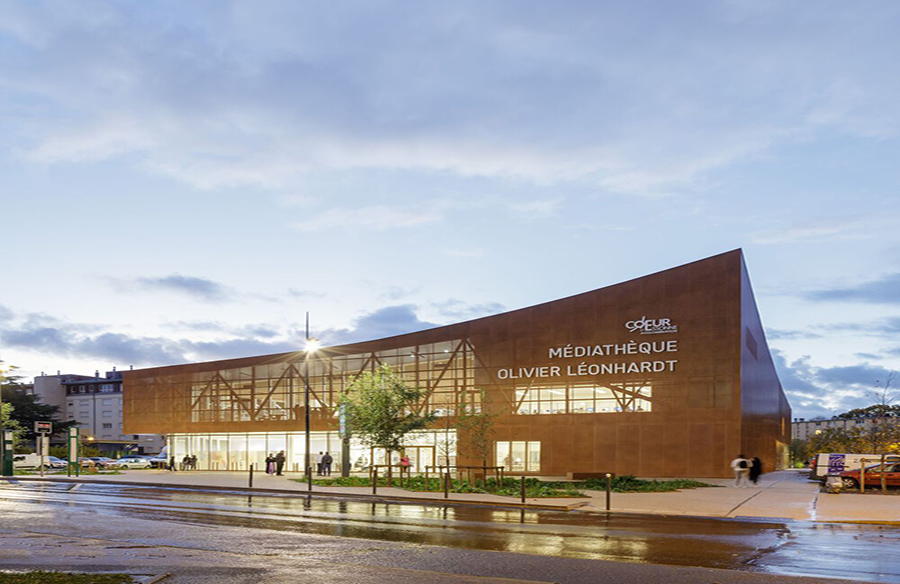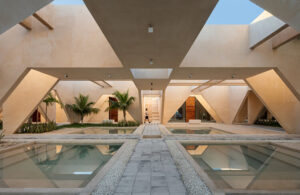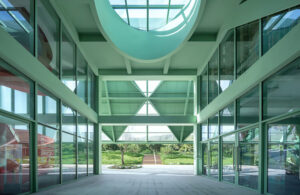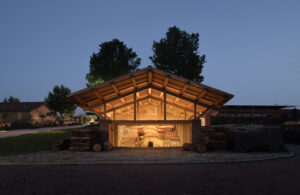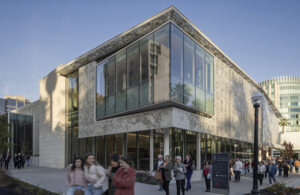Situated in Sainte-Geneviève-des-Bois, France, the Olivier Léonhardt Media Library stands as a testament to the local government’s commitment to fostering cultural accessibility. Designed by Calmm architecture and archi5, this mixed-use architectural marvel redefines the urban landscape, transforming a former market site into a vibrant cultural hub.
Urban Revitalization
Located within the “U de Saint Hubert” residential area, known for its social and economic challenges, the media library serves as a beacon of cultural revitalization. The project emerged from a competition aimed at rejuvenating the neighborhood and providing residents with access to cultural resources.
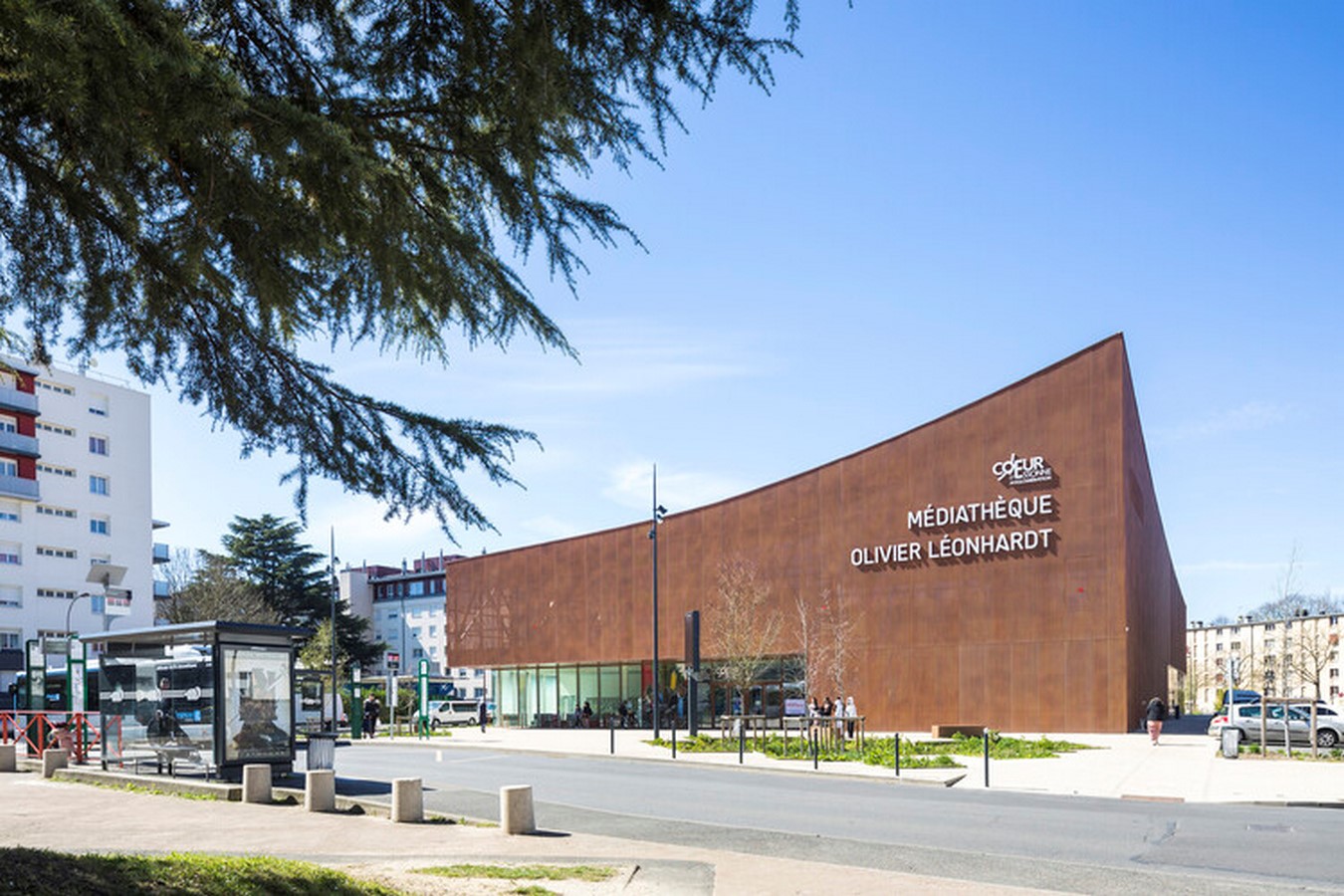
Architectural Vision
The media library’s design harmonizes with the surrounding landscape, integrating seamlessly among the towering trees that define the area. Its micro-perforated envelope blurs the lines between interior and exterior, inviting visitors to immerse themselves in the natural surroundings while preserving the ambiance within.
Spatial Innovation
Drawing inspiration from the urban grid, the library’s layout combines orthogonal and diagonal elements, fostering adaptability and connectivity. The metal structure lends a sense of fluidity to the space, with interior courtyards and a double-height atrium enhancing visual continuity and providing a tranquil environment for contemplation.
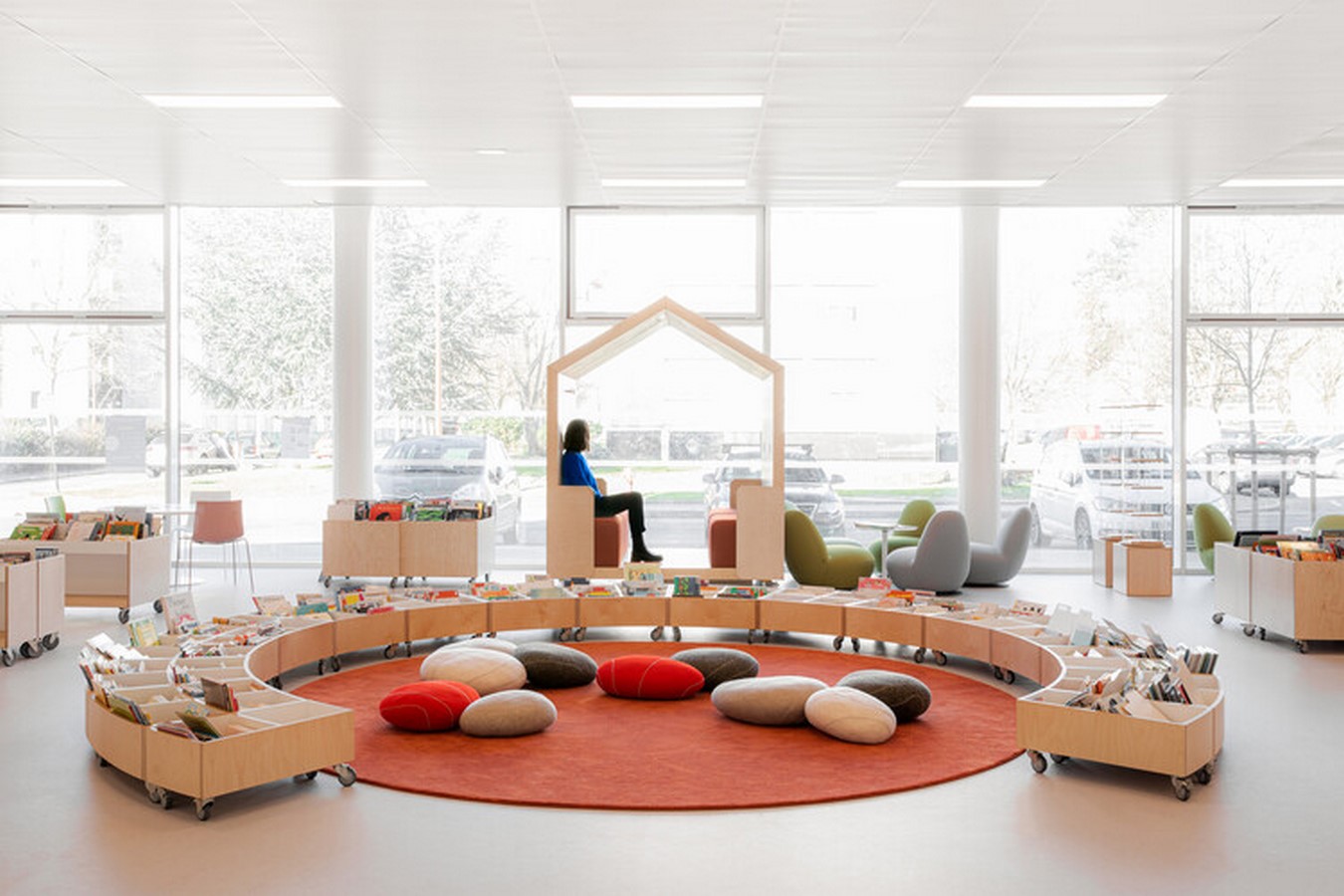
Sustainable Design
Embracing sustainability, the library maximizes natural light and ventilation, with a south-facing orientation optimizing thermal performance. The use of fair-faced concrete and plywood panels not only ensures acoustic quality but also imbues the interiors with warmth and texture. Flexible features like movable walls and retractable bleachers enhance the library’s versatility, fostering a welcoming atmosphere for all.
Conclusion
The Olivier Léonhardt Media Library transcends its role as a mere repository of knowledge, emerging as a dynamic cultural nexus that uplifts its community. Through innovative design, sustainable practices, and a commitment to accessibility, this architectural gem exemplifies the transformative power of cultural architecture in enriching lives and revitalizing neighborhoods.

